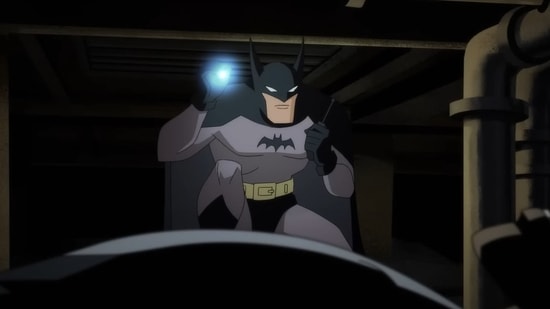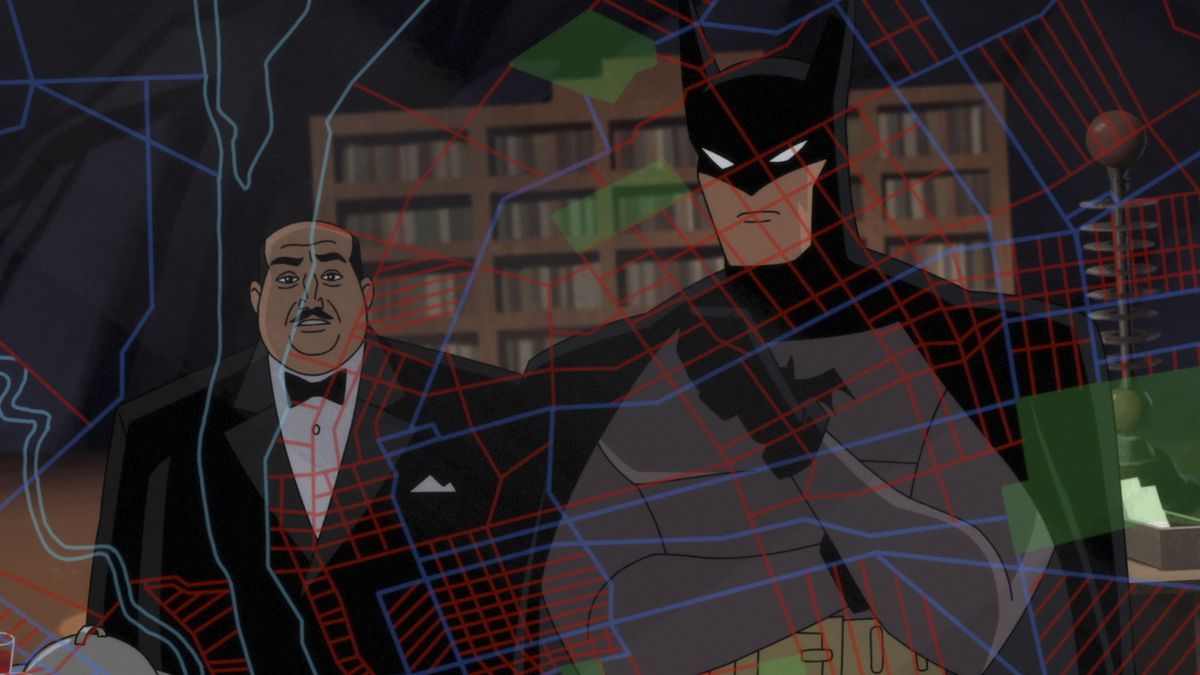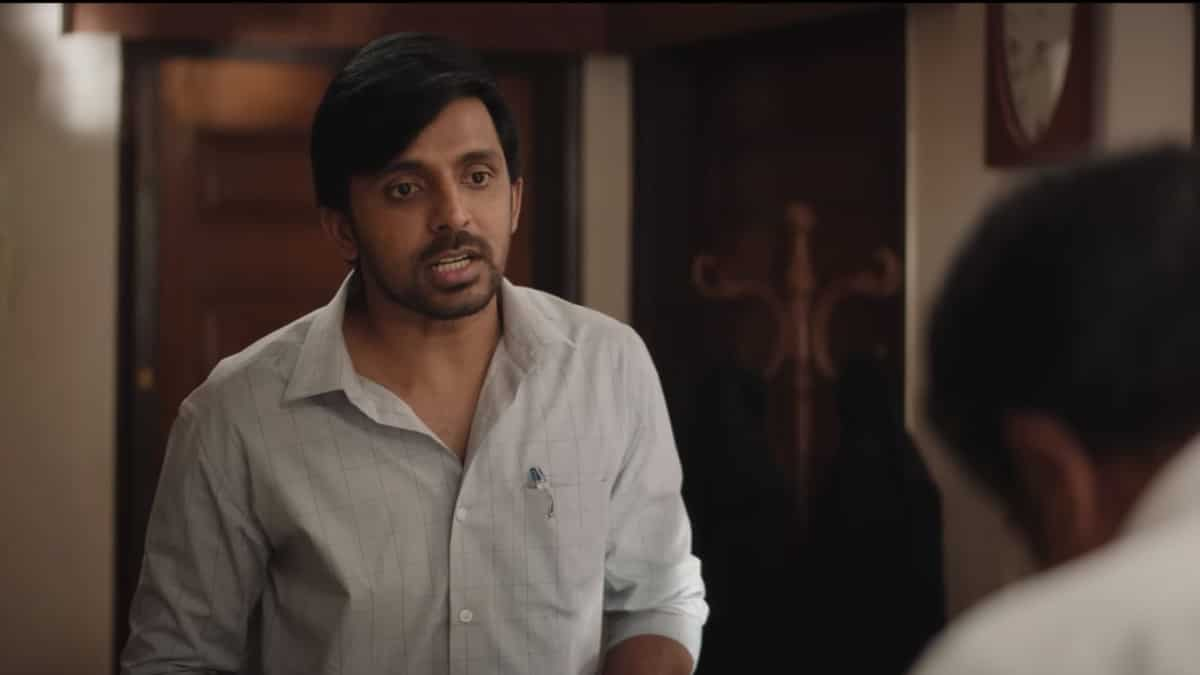
Batman: Caped Crusader review – The Dark Knight goes to therapy in this nostalgic animated series with new-age politics
8 months ago | 75 Views
Batman: Caped Crusader review – Both Christopher Nolan and Matt Reeves presented Batman as this brooding beast in the Dark Knight franchise and The Batman (2022) respectively. Ben Affleck's portrayal in Batman v Superman and Justice League didn't help much either. Which is why The Lego Batman Movie (2017) proved to be such a breath of fresh air. It featured a Batman not engulfed in DC's darkness, but one who didn't take himself too seriously. A new animated series hits the sweet spot somewhere between the brooding and the self-deprecating, between grainy Gothic noir and animated comic, and between old-world charm and new-age politics.
Bruce Timm meets Matt Reeves
Batman: The Animated Series (1992-95) creator Bruce Timm has also developed Batman: Caped Crusader. However, he doesn't go all X-Men ‘97 on it by picking up where he left off. The new animated series isn’t a continuation of the original, but a completely new one with a period setting, a Gothic noir aesthetic, and harking back to Bruce Wayne's early days as Batman as depicted in the comics of the 1940s and ‘50s. However, Caped Crusader also has Matt Reeves and JJ Abrams attached as executive producers. So the apple doesn’t fall far from the ideological tree nurtured by Reeves in the latest Batman movie.
The conflict around vengeance is still at the core of this Batman story. Whether he's a seeker of vengeance or an enabler of that makes for a dilemma that's true to not only his life and purpose, but also to society today. But the conflict isn't Batman's alone to carry – other Gotham dwellers also chip in, from both sides of the law. So there's a criminal psychologist, two criminal lawyers, and the police commissioner among others who have varying stances on how the outlaws should be treated – whether there should be extra-judicial killings, whether they have a right to justice, and whether you should bend with the system or try to fix it.

So there's Batman who uses his suave Bruce Wayne persona to talk acid attack victim Harvey Dent into revealing the perpetrator's identity, without paying heed to his state of mind then. When his voice of reason, his loyal butler Alfred Pennyworth, advises him to go gentle on his trauma, Bruce argues that Harvey doesn't deserve mercy as he's been a corrupt, opportunistic lawyer himself. Even while persuading Harvey aka Two-Face to become a state witness, an otherwise calm Bruce snaps at him, “Don't try to build a conscience now.” In that moment, he strikes exactly like Two-Face does. They're two sides of the same coin – in an unhealthy yet symbiotic relationship with an alternate personality born out of a deep-seated tragedy.
Not just a Batman show
Caped Crusader also acknowledges that Gotham is about its people, and not just its vigilante. Even the villains have a backstory to them. Sure, that may blunt their claws, so does the quick 25-minute runtime of each episode, but it also lends them a spine. Familiar Batman antagonists return – from a hint at his arch nemesis in season 1 finale, an intriguingly cerebral Harley Quinn, a Psycho-like Clayface, a bratty Catwoman, and surprise, surprise – a female Penguin, who's a merciless mother and a rip-roaring singer. The gender flip is smartly used to lend more mystique and menace to the character.
It also gels well with the progressive politics of the old-world series. Women have a lot to do here – not only in the form of the bad guys – ah, girls – but also the lawkeepers. Barbara Gordon is almost a parallel lead – she has her own arc, conflicts, action scenes, and purpose. A criminal lawyer, her ideological conflict with father Commissioner Gordon makes for a meaty sidebar, and so does her relentless quest to usher second chances for everyone, including her former rival-turned-outlaw. Detective Montoya is another prominent woman character, who goes from solving a retro-style whodunit with Batman to taking charge of the task force to nab the caped crusader. Her queer sexuality is also established, along with that of Dr. Harleen Quinzel, a criminal therapist.
She's introduced when Bruce Wayne is sent to therapy for assaulting a man. In his early days as Batman, Bruce is shown to be struggling with not letting his alter ego spill into his public identity. The therapist suggests that Bruce's casanova image is a careful construction to guard the darkness within. While he doesn't really give in to those psychological baits, Batman's deepest darkest secrets come to the fore in fleeting rushes. For instance, when a friend points out that they're taught to treat staff as family, he realises he can't be too vulnerable with Alfred. Hell, till that point, he doesn't even address him by the first name, but dismissively as Pennyworth. Amid all the vengeance-obsessed darkness, he can't even see how he doesn't treat the less fortunate as equals. That's a good starting point to ask: is he fighting the crime to save the innocent, or just to penalise the criminals?
All episodes of Batman: Caped Crusader are streaming on Prime Video.
Read Also: Tower of God Season 2 Episode 5: Release date, where to watch and more info





















